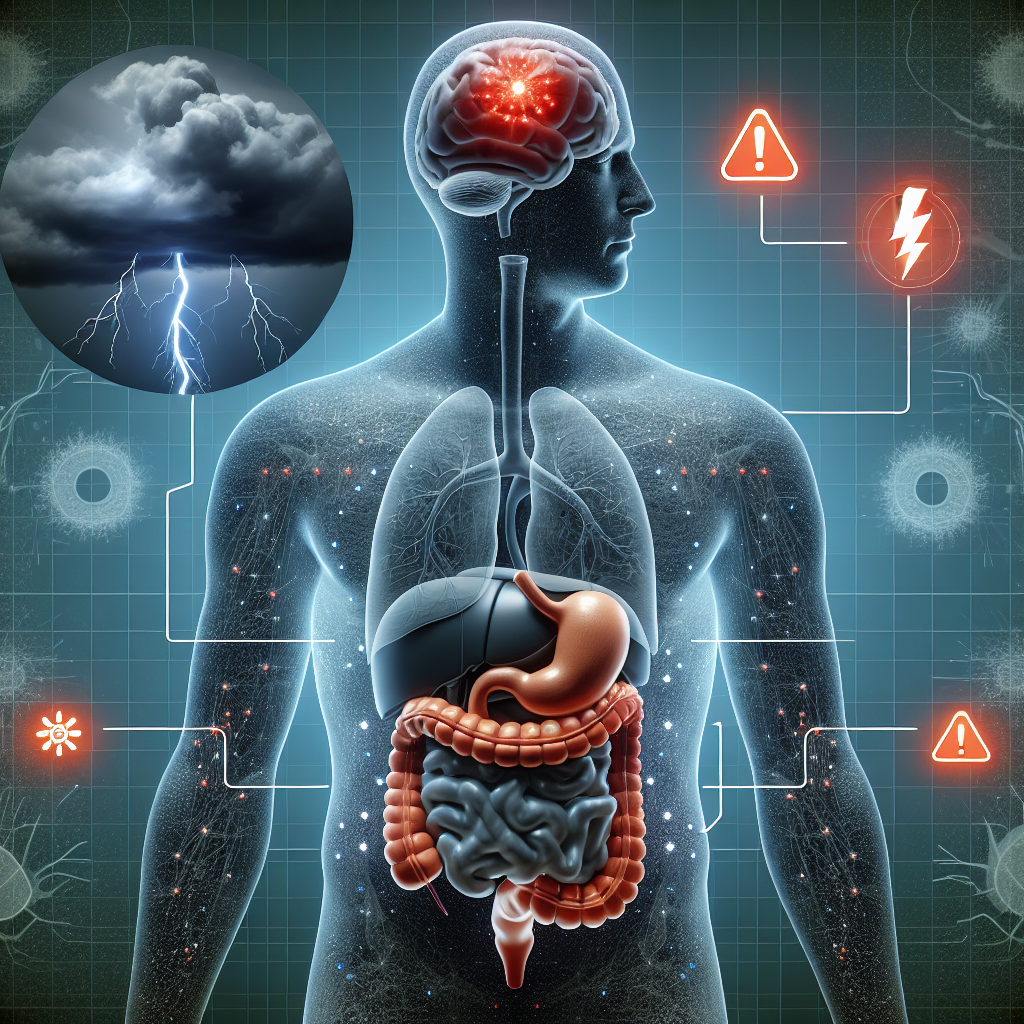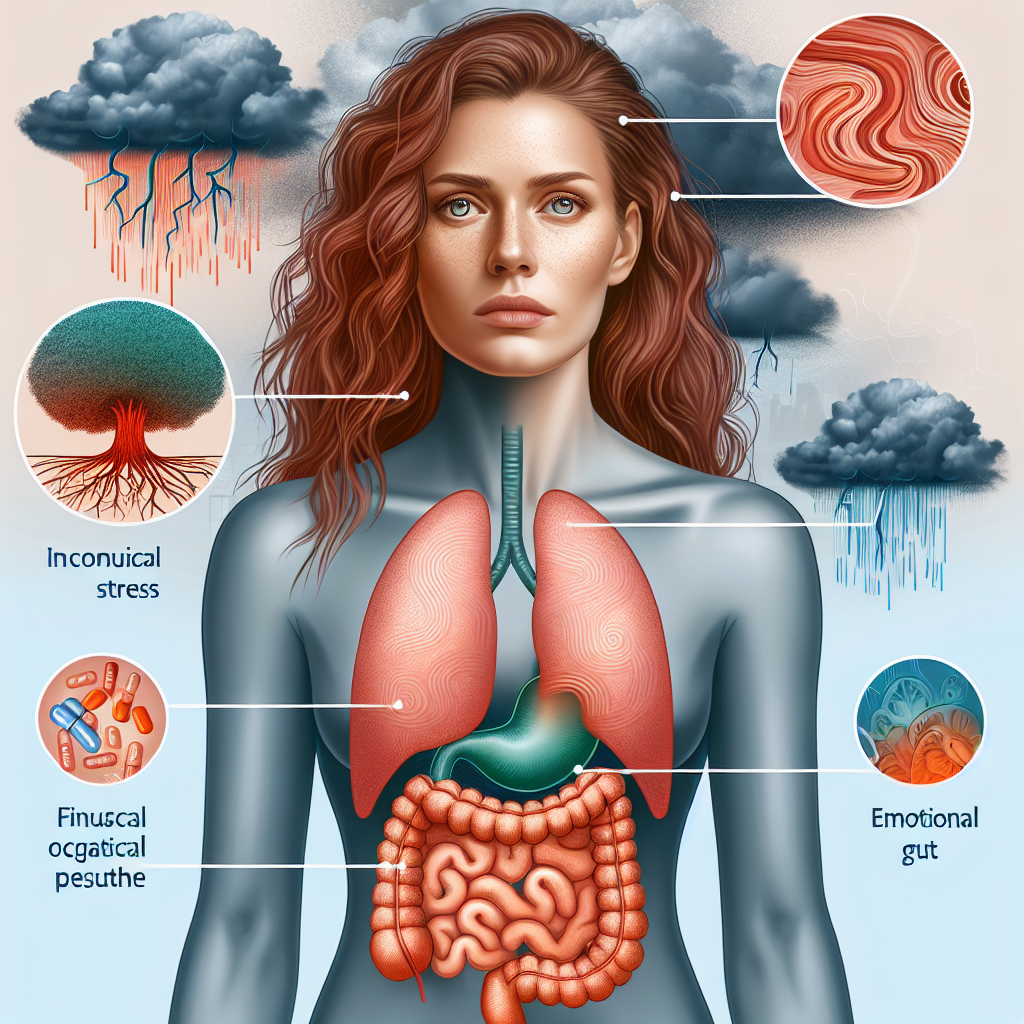How Stress Affects Your Gut Health

Discover how stress can significantly impact your gut health. Learn more about the connection between stress and your digestive system, and find out how to manage it effectively. Don’t let stress ruin your gut health. Visit www.myvibrantvitality.com today.
Understanding the Connection Between Stress and Gut Health
The human body is a complex system where various components interact and influence each other in ways that are often surprising. One such interaction is the connection between stress and gut health. This relationship is a two-way street, with stress impacting the gut and gut health, in turn, influencing stress levels. Understanding this connection can provide valuable insights into managing both stress and gut health more effectively.
Stress is a natural response to challenging or threatening situations. However, chronic stress, which persists over an extended period, can have detrimental effects on various aspects of health, including the gut. The gut, or gastrointestinal tract, is not just a food processing unit but also a vital part of the body’s immune system and a host to trillions of bacteria, collectively known as the gut microbiota. These bacteria play a crucial role in digestion, nutrient absorption, and overall health.
The connection between stress and gut health lies in the body’s stress response system, also known as the hypothalamic-pituitary-adrenal (HPA) axis. When a stressful situation arises, the HPA axis triggers the release of stress hormones like cortisol. These hormones prepare the body for a ‘fight or flight’ response by increasing heart rate, blood pressure, and glucose levels. However, they also affect the gut by altering its function and structure.
Stress can cause changes in gut motility, leading to symptoms like diarrhea or constipation. It can also increase gut permeability, allowing harmful bacteria and toxins to leak into the bloodstream, a condition known as ‘leaky gut’. Moreover, stress can disrupt the balance of the gut microbiota, reducing the diversity and abundance of beneficial bacteria and promoting the growth of harmful ones. This dysbiosis can further exacerbate stress by triggering inflammation and weakening the immune system.
Interestingly, the gut can also influence stress levels. The gut and the brain communicate through the gut-brain axis, a bidirectional communication network involving neural, hormonal, and immune pathways. The gut microbiota plays a key role in this communication. Certain types of bacteria can produce neurotransmitters like serotonin and gamma-aminobutyric acid (GABA), which regulate mood and stress response. A healthy gut microbiota can thus help maintain mental well-being and resilience to stress.
However, when the gut microbiota is disrupted, this communication can be impaired, leading to increased stress and anxiety. Studies have shown that people with certain gastrointestinal disorders, like irritable bowel syndrome (IBS) and inflammatory bowel disease (IBD), often suffer from stress-related mental health issues, suggesting a strong link between gut health and stress.
In conclusion, stress and gut health are closely intertwined, with each influencing the other in a complex interplay. Chronic stress can disrupt gut function and microbiota balance, leading to various gastrointestinal and systemic health issues. On the other hand, a healthy gut can help manage stress and promote mental well-being. Therefore, managing stress and maintaining gut health should be integral parts of a holistic approach to health and well-being. This can be achieved through a balanced diet, regular exercise, adequate sleep, and stress management techniques like mindfulness and relaxation exercises.
How Chronic Stress Impacts Your Digestive System

The human body is a complex system of interconnected parts, each playing a crucial role in maintaining overall health. One such connection that has been gaining attention in recent years is the relationship between stress and gut health. It is becoming increasingly clear that chronic stress can have a profound impact on your digestive system, leading to a range of health issues.
Stress is a natural response to challenging or threatening situations. However, when stress becomes chronic, it can wreak havoc on your body, particularly your digestive system. The gut, often referred to as the ‘second brain,’ is incredibly sensitive to stress. This is due to the gut-brain axis, a bidirectional communication system between the central nervous system and the gastrointestinal tract.
When you’re stressed, your body goes into ‘fight or flight’ mode. This response releases stress hormones like cortisol, which can disrupt the balance of your gut microbiota, the community of microorganisms living in your intestines. These microorganisms play a vital role in digestion, nutrient absorption, and immune function. An imbalance in gut microbiota, known as dysbiosis, can lead to digestive issues such as bloating, constipation, diarrhea, and irritable bowel syndrome (IBS).
Moreover, chronic stress can lead to inflammation in the gut. Inflammation is a natural defense mechanism, but when it becomes chronic, it can damage the gut lining, leading to a condition known as ‘leaky gut.’ This condition allows toxins and bacteria to leak into the bloodstream, triggering an immune response and potentially leading to autoimmune diseases.
Additionally, stress can affect the movement and contractions of the gastrointestinal tract, leading to conditions like gastroesophageal reflux disease (GERD) and peptic ulcers. Stress can also exacerbate symptoms in people with chronic digestive disorders, such as Crohn’s disease and ulcerative colitis.
Furthermore, the impact of stress on gut health can create a vicious cycle. As stress disrupts the gut microbiota and leads to digestive issues, these issues can, in turn, lead to increased stress and anxiety. This cycle can be particularly challenging to break, leading to a long-term impact on both mental and physical health.
However, the good news is that there are ways to manage stress and improve gut health. Regular physical activity, a balanced diet, adequate sleep, and mindfulness practices like meditation can all help reduce stress levels and promote a healthy gut. Probiotics and prebiotics, which help maintain a healthy gut microbiota, can also be beneficial.
In conclusion, chronic stress can have a significant impact on your digestive system, leading to a range of health issues. Understanding the connection between stress and gut health is crucial for maintaining overall health. By managing stress effectively and taking steps to promote a healthy gut, you can break the cycle of stress and digestive issues and improve both your mental and physical health.
The Role of Stress in Gut-Related Disorders
Stress is an inevitable part of life. It can be triggered by various factors such as work pressure, financial worries, or personal issues. While a certain amount of stress can be beneficial, acting as a motivator and helping us to meet daily challenges, chronic stress can have detrimental effects on our overall health. One area of our health that is particularly susceptible to the impact of stress is our gut.
The gut, also known as the digestive tract, plays a crucial role in our overall health. It is responsible for breaking down food, absorbing nutrients, and eliminating waste. However, the gut is not just a food processing unit. It is also home to trillions of bacteria, collectively known as the gut microbiota, which play a vital role in our immune system, metabolism, and even our mood.
The relationship between stress and gut health is a complex one. When we are stressed, our body responds by releasing stress hormones such as cortisol. This is part of the body’s ‘fight or flight’ response, which prepares us to deal with perceived threats. However, when stress becomes chronic, this response can disrupt the balance of the gut microbiota, leading to a condition known as dysbiosis. Dysbiosis has been linked to a range of gut-related disorders, including irritable bowel syndrome (IBS), inflammatory bowel disease (IBD), and gastroesophageal reflux disease (GERD).
Moreover, stress can also affect the gut-brain axis, a bidirectional communication system between the gut and the brain. This axis allows the gut and the brain to send signals to each other, influencing various bodily functions. When we are stressed, this communication can become disrupted, leading to changes in gut motility, secretion, and sensitivity. This can result in symptoms such as abdominal pain, bloating, and changes in bowel habits.
Furthermore, stress can also impact the gut barrier, a layer of cells that line the gut and prevent harmful substances from entering the bloodstream. Chronic stress can weaken this barrier, allowing harmful bacteria and toxins to ‘leak’ into the bloodstream, a condition known as ‘leaky gut’. This can trigger an immune response, leading to inflammation and potentially contributing to the development of various diseases, including autoimmune disorders.
In addition to these physiological effects, stress can also influence our gut health through our behaviors. For instance, when we are stressed, we may be more likely to engage in unhealthy behaviors such as eating a poor diet, smoking, or drinking alcohol, all of which can negatively impact our gut health.
In conclusion, stress can have a profound impact on our gut health, contributing to a range of gut-related disorders. However, the good news is that there are various strategies that can help to manage stress and promote gut health. These include regular physical activity, a healthy diet, adequate sleep, and stress management techniques such as mindfulness and meditation. By taking steps to manage stress and promote gut health, we can help to protect our overall health and wellbeing.